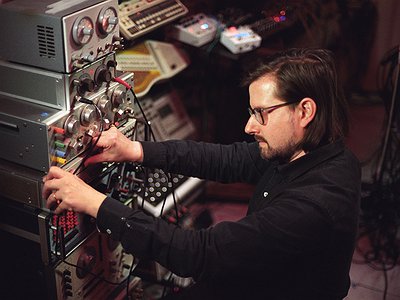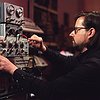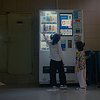Artist: Stefan Paul Goetsch aka Hainbach
Occupation: Composer, sound artist, producer
Current Release: Hainbach's soundtrack to The One Who Runs Away Is The Ghost is out on Digital (March 1st 2024) and Tape (February 13th 2024) via Seil. Watch the movie in full on demand on vimeo.
Recommendation: Der Mönch und das Meer by Caspar David Friedrich
If you enjoyed these thoughts by Hainbach and would like to stay up to date with his music, visit his official homepage. He is also on Instagram, Facebook, Soundcloud, and twitter.
For a deeper dive, check out our earlier Hainbach interview.
Do you think that some of your earliest musical experiences planted a seed for your interest in production and technology?
The sound of the radio and the cassette player were definitely important to me. The medium shapes the message and these are artifacts that I enjoy to this day.
What were your very first active steps with music technology and how would you rate the gains made through experience?
My very first step was a Panasonic cassette recorder. My friends and me thought we could redo our favorite radio dramas and sell them for big bucks. It never went further than a chaotic five minute young kids talking over each other, but this was the beginning of recording for me.
Later I recorded my first music on cassette too, and I hated it. The artifacts, the wobble and the ever present hiss just marked it as unprofessional. When miniDisc came along it felt like godsend - no hiss!
But I quickly advanced into digital recording on the computer, and all the possibilities that came with it.
Were/are you interested in the history of production and recording? If so, which events, albums, artists, or insights stand out for you?
I am extremely interested in that! I soak up every story I can find and go with a magnifying glass through grainy pictures of old studios. I avidly read liner notes to get clues on how something was created.
I have taken cues from everything - Sun Studios, Motown, WDR Studio für Elektronische Musik, GRM, Conny Planck and Lee Scratch Perry. My own studio is a mixture of early WDR Studio, Ark Studio and modern digital production.
Making music, in the beginning, is often playful and about discovery. How do you retain a sense of playfulness and how do you still draw surprises from tools, approaches, and musical forms you may be very familiar with?
There is always a new keyboard, to quote the Pet Shop Boys. I would adapt this to “there is always a new patch“.
Breaking up connections, rearranging existing paths, all this results in new instruments when the instrument is your studio.
For your own creativity, what is the balance and relative importance between what you learned from teachers, tutorials and other producers on the one hand – and what you discovered, understood, and achieved yourself? What are examples for both of these?
I treasure learning by doing. Being thrown into an unfamiliar situation and then experimenting my way out of it makes it easy to archive a flow state, where I make decisions fast and musical.
I do not watch tutorials, unless it's a washing machine repair video. But I do love watching people work - it is so good picking up ideas and techniques by just observing. My test equipment explorations are something that I learned by doing, building up a setup piece by piece and talking and working alongside Dennis Verschoor and Hans Kulk. 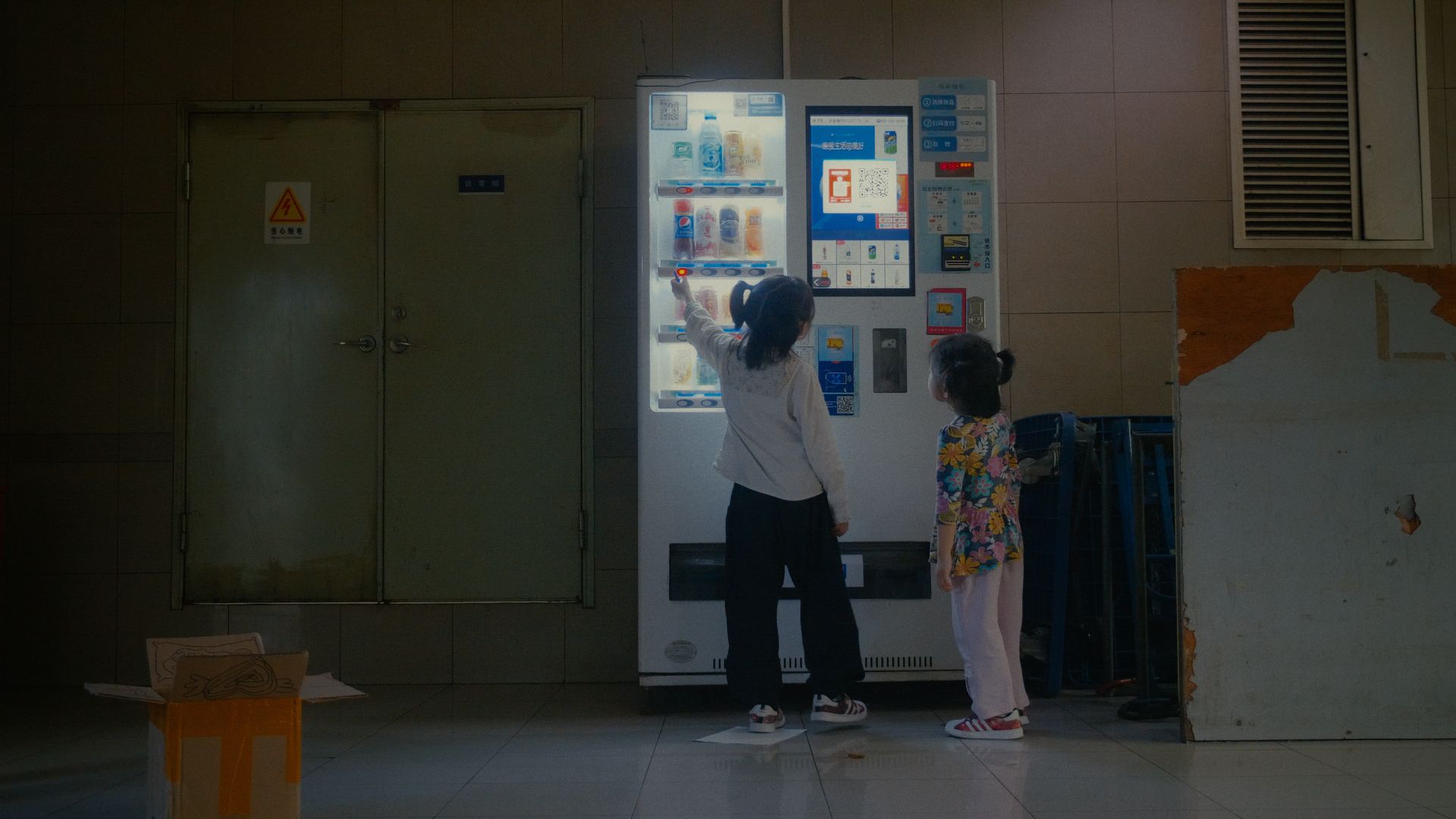
The One Who Runs Away Is The Ghost Film Still by Moserfilm
How and for what reasons has your music set-up evolved over the years and what are currently some of the most important pieces of gear and software for you?
I have the ambition to have worked with all the important bits of music technology in my life. The things that made electronic music what it is. My studio has changed from a relative simple affair to three distinct places with gear that was used across the decades, reaching as far back as 1921.
I have also become a software developer and worked on many plugins with AudioThing and Bram Bos. The most important of these for my live music is Fluss, a granular synthesizer based on the kinetic world Xenakis described.
Have there been technologies which have profoundly influenced, changed or questioned the way you make music?
I rediscovered tape at some point. Using professional machines free from hiss I learned to explore all the creative possibilities it offers.
Already as a little kid, I was drawn to all aspects of electronic/electric music but I've never quite been able to put a finger on why this is. What's your own relationship to electronic sounds, rhythms, productions like – what, if any, are fundamental differences with “acoustic“ music and tools?
The main difference is that with electronic equipment you get more chance to observe, while with acoustic instruments you have to play.
Much of my work relies on working with acoustic material and running that through electronic processes to see what is inside of it. Filters and time-shifting processes reveal things to me I had not heard before.
Late producer SOPHIE said: “You have the possibility with electronic music to generate any texture, and any sound. So why would any musician want to limit themselves?” What's your take on that and the relevance of limitations in your set-up and process?
There lies infinity in limitations. If you watch film The One Who Runs Away Is the Ghost I just released the soundtrack to, you can see the two sisters turn the limited space of the Shenzhen electronics market into their playground. That resonated with me.
The One Who Runs Away Is The Ghost Film Still by Moserfilm
If I choose to only work with a certain set of tools for a piece, I can dive deeply into what these tools are and listen to the music inside them. It is a challenge to imagination and an experiment that brings out a deeper understanding and interesting new music. If I would use everything at once all the time I would only skim the surface of what these instruments can do.
Same goes for writing for orchestra vs for solo instruments. If you do the latter you get a better understanding for how it works in context.
From the earliest sketches to the finished piece, what does your current production workflow/process look like?
I don’t sketch unless it's for scoring work. I mostly sit down in my studio and go out when I have something that resonates with me, or it is lunchtime. Then I go back until it is done.
After I have completed a bunch of pieces I listen to them together, and decide which one is good enough to keep, or which one needs more work.
Rhythm, sound design, melody/harmony, something else – when do the different elements of a piece come into play for you?
This a process that is pretty much mashed up all into one - an overloaded lock-in amplifier can produce overtones that sound like a melody to me, so I react and tune another one differently. A rhythm becomes harmony, a blast of feedback a melody.
And sometimes I just sit down on the piano and play until my fingers hit something I react to. 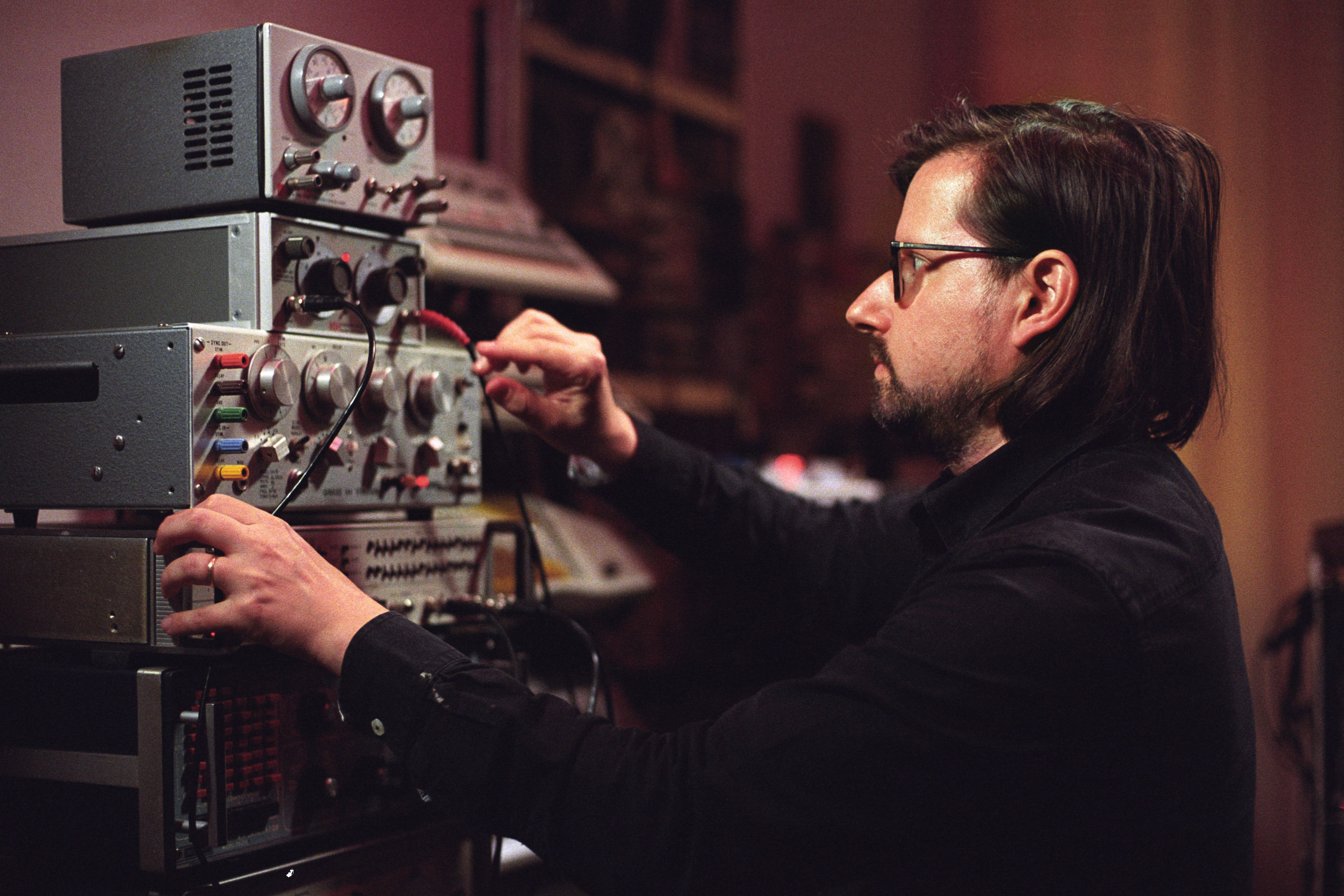
Hainbach Interview Image by Moserfilm
In relation to sound, one often reads words like “material”, “sculpting”, and “design”. How does your own way of working with sound look like? Do you find using presets lazy?
I have designed hundreds of presets for my software for musicians to use, and I am happy when I hear them in their music. Presets are beautiful things, little boxes of ideas that help spark creativity.
And some are just endlessly useful - I have not really tweaked my Oberheim Xpander because I just get stuck on the choir sound every time.
What, to you, are the respective benefits of solo work and collaborations and do you often feel lonely in the studio? Can machines act as collaborators to you?
I am happy in my studio, there is no thought of loneliness. I do create feedback loops so the machine start speaking back in unpredictable ways. As soon as there are soundwaves pulsing around me I get lost in them.
I do collaborate with other artists as much as possible: For the Soundtrack to The One Who Runs Away Is the Ghost I worked again with producer and cinematographer Julian Moser. Our collaboration goes way back, from the 2017 documentary Bruderkrieg (War of Brothers) to music videos.
To some, the advent of AI and 'intelligent' composing tools offers potential for machines to contribute to the creative process. What are your hopes, fears, expectations and possible concrete plans in this regard?
So far AI creates mud, no texture. If you like edges, corners, sharpness, it is boring.
In an assistive role - well it would be nice to an Enterprise computer like Ableton Live. I could tell it to hit record while I sit at the piano, and have it know which channel is what and such. That would be useful, especially in making things accessible for people with disabilities.
If you could make a wish for the future directly to a product developer at a Hard- or Software company – what are developments in tools/instruments you would like to see and hear?
Well that Enterprise computer assistant would be nice.
For anything else, I am lucky to have partners to develop my instrument dreams with.



